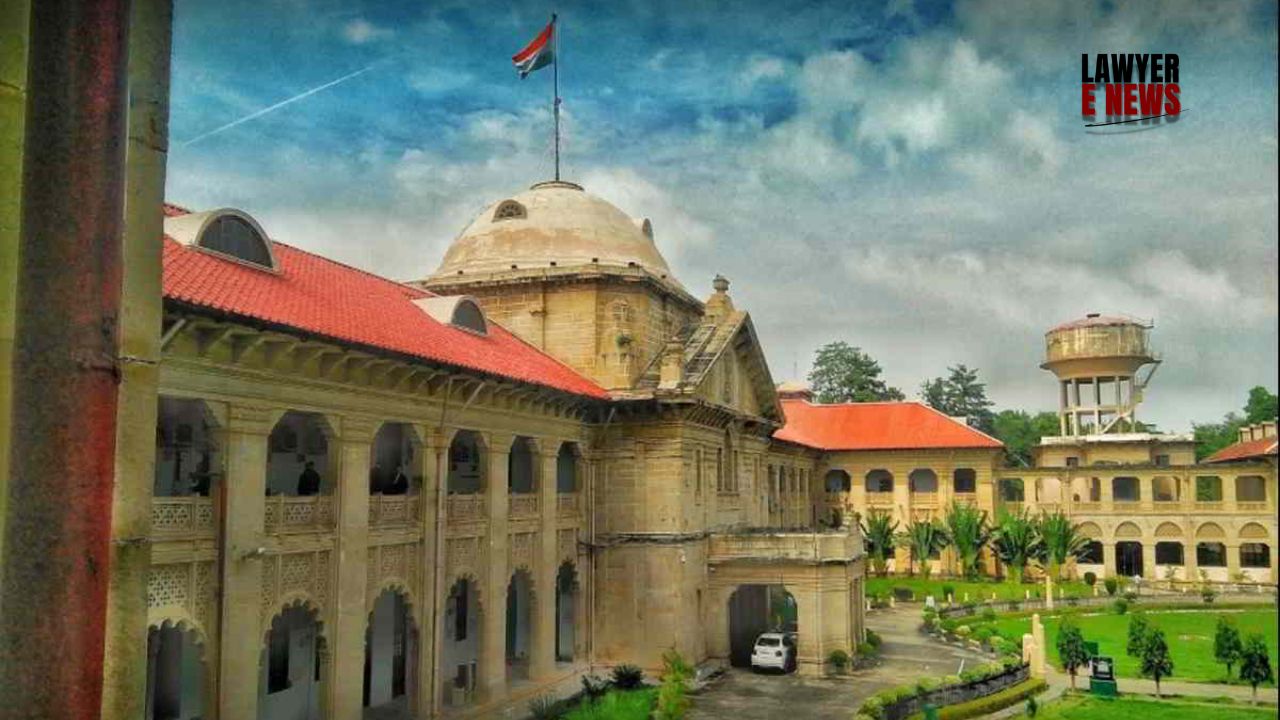-
by Admin
15 February 2026 5:35 AM



In a significant judgment, the Allahabad High Court dissolved a marriage that had endured nearly three decades of turmoil, emphasizing the "extreme cruelty" inflicted by the wife through baseless criminal allegations. The court overturned the trial court's decree of restitution of conjugal rights, citing the malicious prosecution and long-term separation as clear evidence of an irretrievable breakdown of the marriage.
Basant Kumar Dwivedi and Kanchan Dwivedi were married on April 29, 1992. Basant, an engineer by profession, was employed in Delhi, while Kanchan, though educated, was not employed at the time of marriage. The couple's relationship became strained early on, and by November 8, 1995, Kanchan permanently left the matrimonial home to live with her parents in Ballia. Despite several attempts by Basant to reconcile, the couple remained separated.
The situation escalated when Kanchan, in 1999—seven years after their marriage—filed a criminal complaint against Basant and his family under Sections 498A (cruelty) and 406 (criminal breach of trust) of the Indian Penal Code (IPC), as well as under the Dowry Prohibition Act. These charges, including accusations of dowry demands and cruelty, were later proven to be false, significantly affecting Basant’s professional and personal life.
False Criminal Allegations as Extreme Cruelty: The High Court placed significant emphasis on the cruelty involved in filing false criminal charges. It noted that such actions not only damage the accused's reputation but also create a severe psychological burden, particularly when the accusations are proven unfounded. The court observed, "The appellant being a government servant was put to grave risk on such false allegations...this conduct by the respondent amounts to extreme cruelty."
The court referred to the testimony of Kanchan's brother, Arvind Kumar Pandey, who under oath, contradicted the allegations of dowry demands, affirming that no such demands were made by Basant or his family. The bench underscored the recklessness of Kanchan's actions, stating, "When it was known from before to the respondent that there was no demand of dowry in the marriage, the fact that she chose to make such allegations most recklessly...leaves us with no doubt that the conduct of the respondent was extremely cruel."
The High Court recognized the long period of separation and the irreparable harm caused by the false criminal proceedings as indicators of an irretrievable breakdown of the marriage. Despite the earlier decree for restitution of conjugal rights in Kanchan’s favor, the court noted that the marriage had effectively ceased to exist in any meaningful sense. The bench remarked, "The marriage between the parties is dissolved...the decree for restitution of conjugal rights cannot be sustained and is set aside."
The court also highlighted that Kanchan had continued to live separately for 29 years, without any attempts at genuine reconciliation, further solidifying the conclusion that the marriage was beyond repair. "A Hindu marriage is a sacrament, not just a social contract. Where one partner abandons the other without reason or just cause, the sacrament loses its soul and spirit, though it may continue to hold its external form and body," the judgment stated.
The judgment delved into the principles of cruelty in matrimonial law, referencing various Supreme Court rulings. The bench explained that cruelty can be both physical and mental, with mental cruelty encompassing acts that cause severe emotional distress, such as false accusations. The court referred to the case of N.G. Dastane v. S. Dastane, where the Supreme Court held that cruelty must be assessed from the perspective of the aggrieved spouse, considering whether the conduct would make it unsafe or harmful to live with the other party.
The court further noted that in situations where a spouse faces criminal prosecution based on false allegations, the emotional and reputational damage constitutes sufficient grounds for divorce. The judgment cited the Supreme Court's observation that "legal cruelty has to be found out, not merely as a matter of fact, but as the effect on the mind of the complainant spouse because of the acts or omissions of the other."
This ruling has far-reaching implications for similar cases where one spouse uses the legal system to harass the other. The court's emphasis on the seriousness of false criminal allegations as a form of cruelty reinforces the legal protections available to those falsely accused. The decision also serves as a warning against the misuse of legal provisions like Section 498A IPC, which are intended to protect against genuine cases of dowry-related cruelty but can be misused to settle personal scores.
"The lodging of false criminal prosecution in 1997 even before any other proceeding had been instituted by the appellant clearly amounted to the last straw on the camel’s back," the court stated, highlighting the destructive impact of such actions on the marriage.
The Allahabad High Court's decision to dissolve the marriage between Basant Kumar Dwivedi and Smt. Kanchan Dwivedi underscores the judiciary's commitment to protecting individuals from the abuse of legal processes. By recognizing the extreme cruelty inherent in false accusations, the court has set a precedent that could influence future cases involving the misuse of legal provisions for personal vendettas.
Date of Decision: 28th August 2024.
XXX VS XXX
